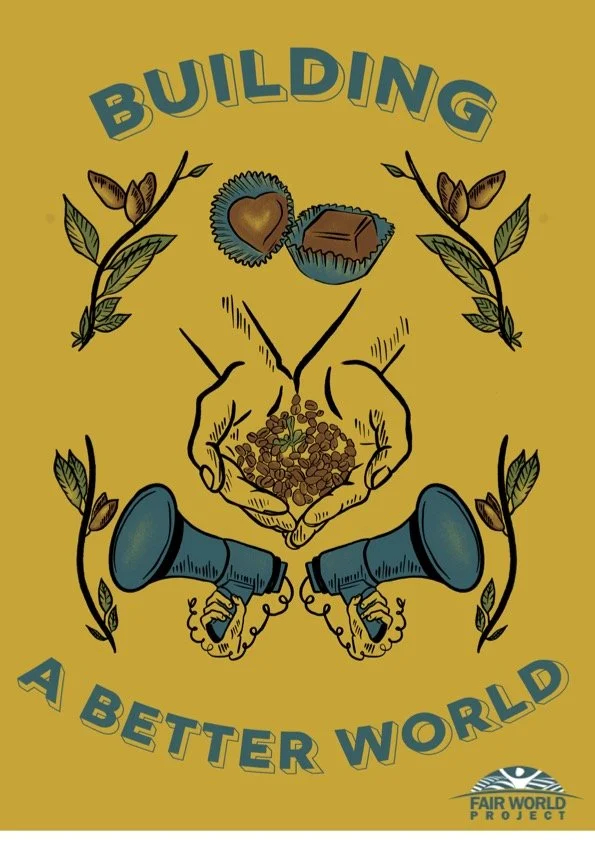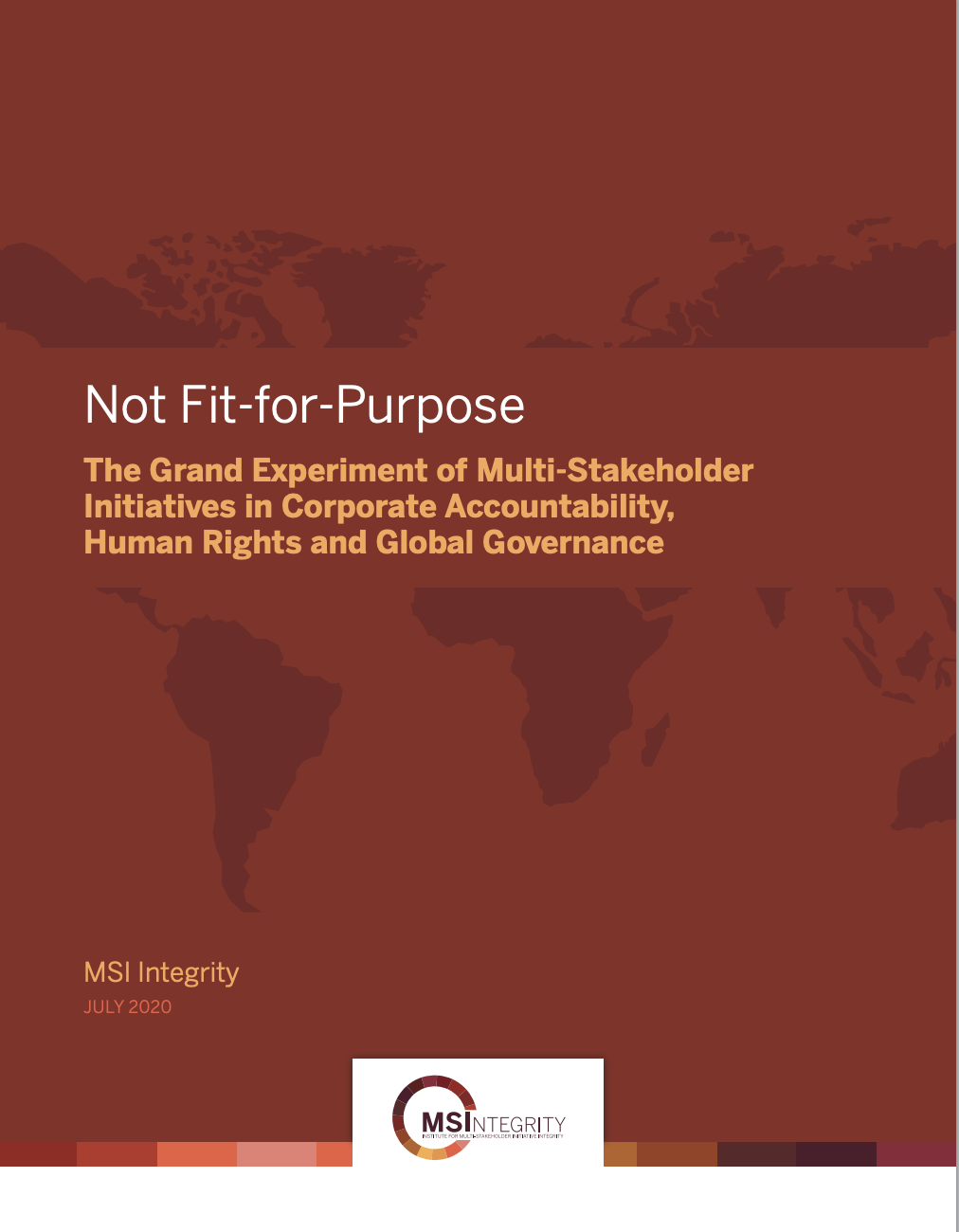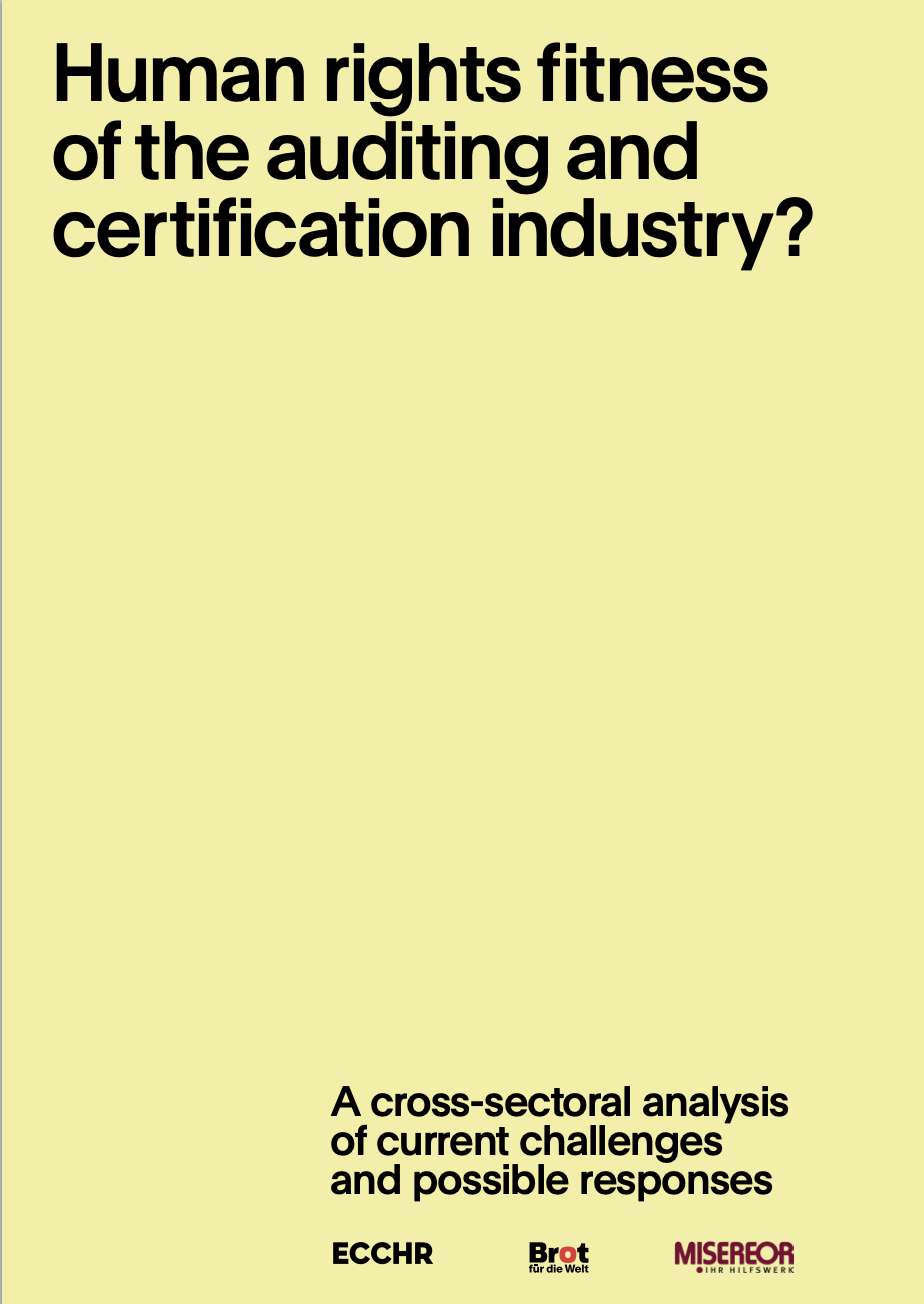Social Auditing and Certifications
Fair World Project
As of January 2023, Fair World Project is a project of Corporate Accountability Lab. Fair World Project (FWP) is a 501(c)(3) non-profit that advocates for fair trade policies that supports small-scale farmers, artisans and workers by promoting organic and fair trade practices and transparent third-party certification. Through consumer education and advocacy, FWP supports dedicated fair trade producers and brands, and insists on integrity in use of the term “fairness” certifications, labeling and marketing. From 2023 onwards, CAL will ensure that FWP’s existing content, including their website, reports, podcast, and social media are maintained so that they can continue to be a resource to all in the fight for a better world.
Read our press release on the merger here.
The movement for fair trade has come a long way since the days of “look for the label” campaigns. Today, fair trade certification has become part of the mainstream discourse, enshrined in companies’ Corporate Social Responsibility Programs. Further, certifications have become a de facto benchmark for what’s fair–for pricing, baseline working conditions, and more.
While the common image of fair trade probably includes a smiling coffee farmer, the reality is fast changing. Other products, including those grown on large-scale farms and plantations, are outpacing traditional fair trade products in market growth.
This paper looks at the latest research on the impacts of ethical certification, as well as changes in the food system over the past decades, including increasing corporate consolidation, and the impacts that has had on attempts at market-driven change.
In FWP’s 2021 Annual Report, we reflect on the challenges faced and our resilience in moving forward. Despite initial hope with COVID vaccine rollouts, insufficient distribution and resistance to vaccination led to the emergence of new variants and a return to closures and mandates. However, amidst these difficulties, we have witnessed a global shift in consciousness, with workers organizing and protests against unjust policies.
During the year, we transitioned from For A Better World magazine to the For A Better World podcast, which received critical acclaim. Our focus remains on building coalitions and advocating for a just economy, fair global trade, and sustainable food systems. We recognize the need for transformative change and prioritize campaign wins and changing narratives. This report highlights our work in monitoring ethical labels, promoting fair procurement, and advancing a just global food system through farmer and worker organizing.
On October 27, 2021, CAL filed suit against Hershey and the certification scheme Rainforest Alliance in a consumer protection case in Washington, D.C. Superior Court. CAL, as the plaintiff in the case, sued the defendants -- Hershey and Rainforest Alliance -- for false and deceptive marketing representations on certain Hershey chocolate products. We brought suit under the Washington, D.C. Consumer Protection Procedures Act (“CPPA”), a consumer protection statute that allows public interest organizations like CAL to sue on behalf of the general public.
Fair Trade USA released a new “Fair Trade Dairy” label in partnership with Chobani. It’s a program that has been opposed by farmworker and human rights organizations since it was first announced. Now that there is yogurt on the shelf, but still no final standard released, this report looks at the label claims and evaluates “Fair Trade Dairy” based on the available standards.
Finally, the report also reviews the rising tide of research that shows that corporate-developed and led certifications are inadequate and points instead to existing models that are better suited to defending workers’ rights and safety. Organized workers are pushing policy changes across the country, improving wages and winning vital workplace protections. And Worker-driven Social Responsibility programs are building power and supporting workers defending their rights and addressing the fundamental power imbalances in the food system.
The report Fyffes Farms Exposed: The Fight for Justice on the Honduran Melon Fields reveals long-term, ongoing human and workers’ rights violations on Fyffes melon farms. Through a series of first-hand interviews and documentation, the report chronicles toxic chemical exposure and wage theft by Fyffes subsidiaries, as well as their violent union-busting campaign once workers organized. The report also details the response of supermarkets, fair trade certifiers, ethical labels, and international governmental organizations to Fyffes workers’ rights violations.
It is high time Fyffes takes responsibility to remedy injustices on their plantations and commits to a legally-binding, enforceable agreement to uphold workers’ rights. That is the conclusion of the report, co-authored by the International Labor Rights Forum, Fair World Project, the International Union of Food Workers Latin America Regional Secretariat, with support from 3F International.











These days, if you go into a grocery store, there are numerous labels on food products touting how ethical and sustainable the product is. Yet these certification labels often misrepresent the labor and environmental standards used to produce these products. Certification schemes, such as Fairtrade International, were initially developed to provide workers – often farm workers in rural areas – with increased income, better working conditions, and a steady stream of buyers. Moreover, they signaled to consumers that the products were produced sustainably, without exploiting workers, children, or the environment.